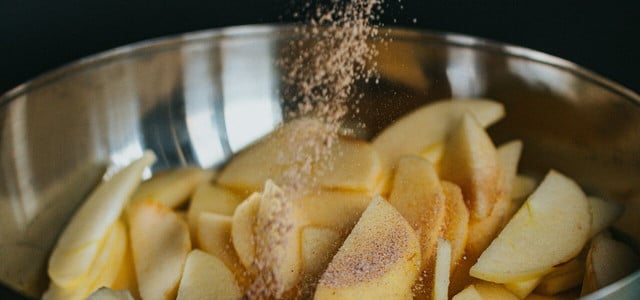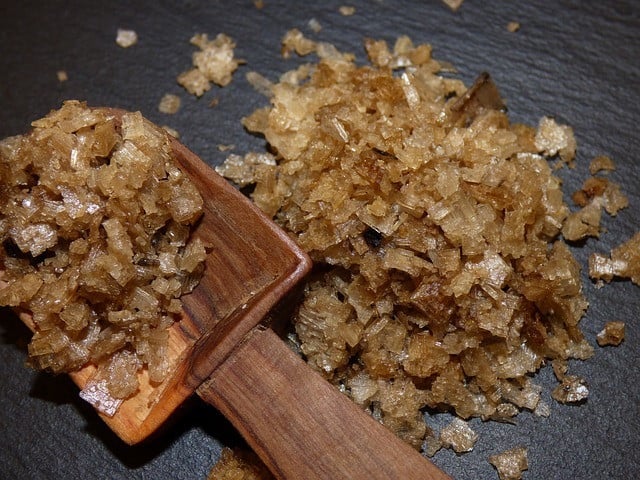
Many people consider brown sugar to be more natural and therefore healthier than white sugar – but is that actually true? We clarify whether and what differences there are.
Brown sugar is often touted as a healthier alternative to white, refined “industrial” sugar. What many people don’t know: Sugar is actually always brown – before it is refined.
Both sugar from local sugar beet as well as from tropical sugar cane or other sources such as coconut blossom nectar is originally brown or at least golden in color. Only when it has been refined several times does it become typically white.
Important to know: Chemically speaking, all of these sugars consist almost exclusively of the disaccharide sucrose. Refined, white table sugar, on the other hand, is pure sucrose.
How is brown sugar made?
Brown sugar is made from sugar beets or sugar cane. Coconut blossom sugar is also usually brown, but is rarely labeled or sold as “brown sugar.” The reason: manufacturers prefer the label “coconut blossom sugar” because many consumers associate it with health-promoting properties.
So how is brown sugar made? This can happen in two ways:
- The starting plants are chopped up, cooked and then pressed to create a thick syrup. This sugar syrup is then dried until crystals form. This is how brown sugar or whole sugar is created.
- Sometimes brown sugar syrup – called molasses – is added to already refined, i.e. white, sugar.
Once the sugar is refined, it is no longer whole sugar, but raw sugar. You’ve probably seen raw cane sugar on the supermarket shelf before. It is slightly lighter and tastes more neutral than whole sugar, less malty and caramelly. Nevertheless, the attribute “raw” makes it seem a lot healthier and natural than refined sugar. In reality, however, both varieties have already been refined.
In contrast to white refined sugar, brown sugar, which is an intermediate product in sugar production, still contains residues of the dark sugar syrup. It therefore contains more minerals than white sugar. However, these are only contained in such small quantities (around one percent) that this is hardly significant.
Which types of sugar are brown?
In summary, there are the following types of brown sugar:
-
Whole sugar (completely purified, thickened and dried sugar juice from which the molasses has not been separated; whether from coconut palm flower nectar, sugar cane or sugar beet)
-
Raw sugar (only slightly refined, slightly brown sugar with a little remaining molasses)
Slightly modified manufacturing or processing processes result in special types of sugar such as
-
Brown rock sugar (coarse sugar crystals, here too molasses is added later to a white sugar solution)
-
Kandisfarin (caramel syrup-coated crystals obtained from a pure sugar solution)
Chemically speaking, they all consist primarily of the same substance: sucrose.
By the way: Another question you should ask yourself about white and brown sugar is: Is sugar vegan?
Which is healthier: brown or white sugar?

(Photo: CC0 / pixabay / flomo001)
Conclusion: Brown sugar is not much healthier than white sugar. All sugars, consisting primarily of sucrose, contain about 400 calories per 100 grams and are known to be harmful to teeth.
As pure dried plant juice, at least whole sugar still contains all of its minerals and vitamins. According to the manufacturer’s information from the organic brand Rapunzel, 100 grams contain, for example, 80 milligrams of calcium, 2.5 milligrams of iron, and 15.5 milligrams of magnesium.
But in order for these to contribute to your nutrient supply, you would have to eat a lot more sugar than is healthy. So it doesn’t matter whether you eat brown or white sugar for your health – the main thing is to eat little!
Brown sugar has more of its own flavor
There is a difference in the taste: brown sugar tastes a bit malty and caramelly, while completely unrefined sugar has a very strong taste.
During production, the brown raw or whole sugar is processed less – this is at least advantageous for the ecological balance, as some energy-intensive processing steps are eliminated. However, it also happens that white sugar is colored brown again to make it look “healthier”. So it’s best not to rely on the “brown” label, but rather look for raw or whole sugar if that’s what you want.
More important than the color: Make sure you buy organic sugar. The seals of the three major organic associations Naturland, Bioland and Demeter are particularly meaningful. These follow stricter guidelines than the EU organic seal – and, by the way, have been practicing, certifying and promoting this form of sustainable agriculture long before the introduction of this legal regulation.
By also buying regional (i.e. beet sugar instead of cane sugar in Germany), you avoid high CO₂ emissions caused by long transport routes, which harm the climate. If you want to avoid sugar, you can also use sugar substitutes instead.
Read more at Techzle\.com:
- This is how our body reacts when we stop eating sugar
- Common sugar traps: hidden sugars in foods
- Aspartame – the controversial sweetener
Edited by Denise Schmucker